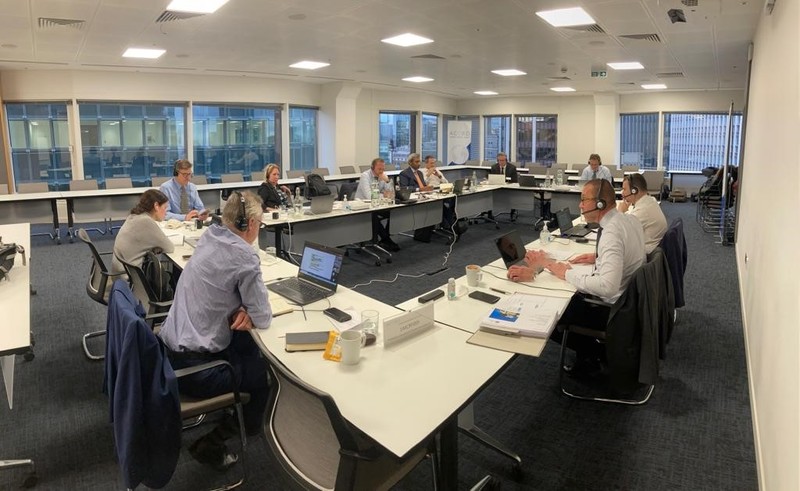The theme for this September's IUMI conference, being held in Chicago, will be "Adapting To A World In Transition", IUMI President Richard Turner said yesterday February 9th at the marine insurer association's winter update. Turner said that this would give a layers context to the conference, dealing with the way that the industry (and shipping) was dealing with the emergence from the Covid-19 pandemic, supply chain issues, the development of the marine insurance operating environment, the emergence of new areas and the shrinking of others, and what insurers need to do to ensure the continuation of their relevance to the client base.
Elsewhere, Phil Graham, chair of the Facts & Figures Committee, said that the underlying risk space for marine insurance had a busy 2021, with a record level of goods transported. Economic stimulus packages, higher commodity prices and an inflationary environment all indicated an increase in insured values. Graham also noted that, subsequent to the committee's report in Seoul last September there had been a relatively benign period for the hull and cargo sectors, which would leave marine insurers in this sector hopeful of reporting improved results for 2021. However, the P&I sector had not had such a happy time, with some significant losses and some deterioration in previous losses.
Isabelle Therrien, chair of the cargo committee, said that the disruption of the supply chain in 2020 had become worse in 2021, and this had implications for the cargo insurance sector. She said that supply chain disruption (and the increase in the cost of carrying freight) had contributed 1.5pp to the inflation rate. There had been a move from "just in time" supply chains to "just in case" chains, but this came with a cost to the bottom line. Therefore the future was likely to consist of a hybrid of the two principles. Therrien said that the cargo industry would need to reassess the data being presented from a stock throughput perspective. "We need to look at our cat modelling to ensure it is adequate for the kind of exposure we have", she said, noting that continuing factors were container ship fires and containers overboard, and the cost of these extreme events. "We need to adapt our risk modelling to ensure that we can be a partner in risk in a sustainable way".
Frank Streidl, chair of the offshore energy committee, noted that, with the discussion of the planned phase out of fossil fuels into renewable energy, his sector had a higher profile than it had a few years ago. He noted that the most vocal sectors in "the outside world" wanted change to come as hard and fast as possible, but Streidl emphasized that any change would have to be evolutionary rather than revolutionary, because there just weren't enough wind farms around at the moment to replace traditional fuels. Streidl said that the insurance sector for offshore energy got more flak than it deserved, because it needed to provide the services that the oil and gas industries require to make that transition out of fossil fuels.
Streidl said that the major factor at the moment was how to measure transition. No one wanted to be accused of greenwashing. "What is hard is to find a globally accepted standard for measuring sustainability. There are not enough disclosure requirements for carbon or sustainability credits which makes it hard for us to find a starting point, and different parts of the world are at different stages, and that drives a lack of developmental speed in parts of it. The scope depends on technological advances, political will, and economic advantages", Streidl said, concluding that what was really needed was "a price for carbon."
This article is kindly supplied by Insurance Marine News. If you would like a complimentary trial to the daily Insurance Marine News e-bulletin please email grant.attwell@insurancemarinenews.com.

